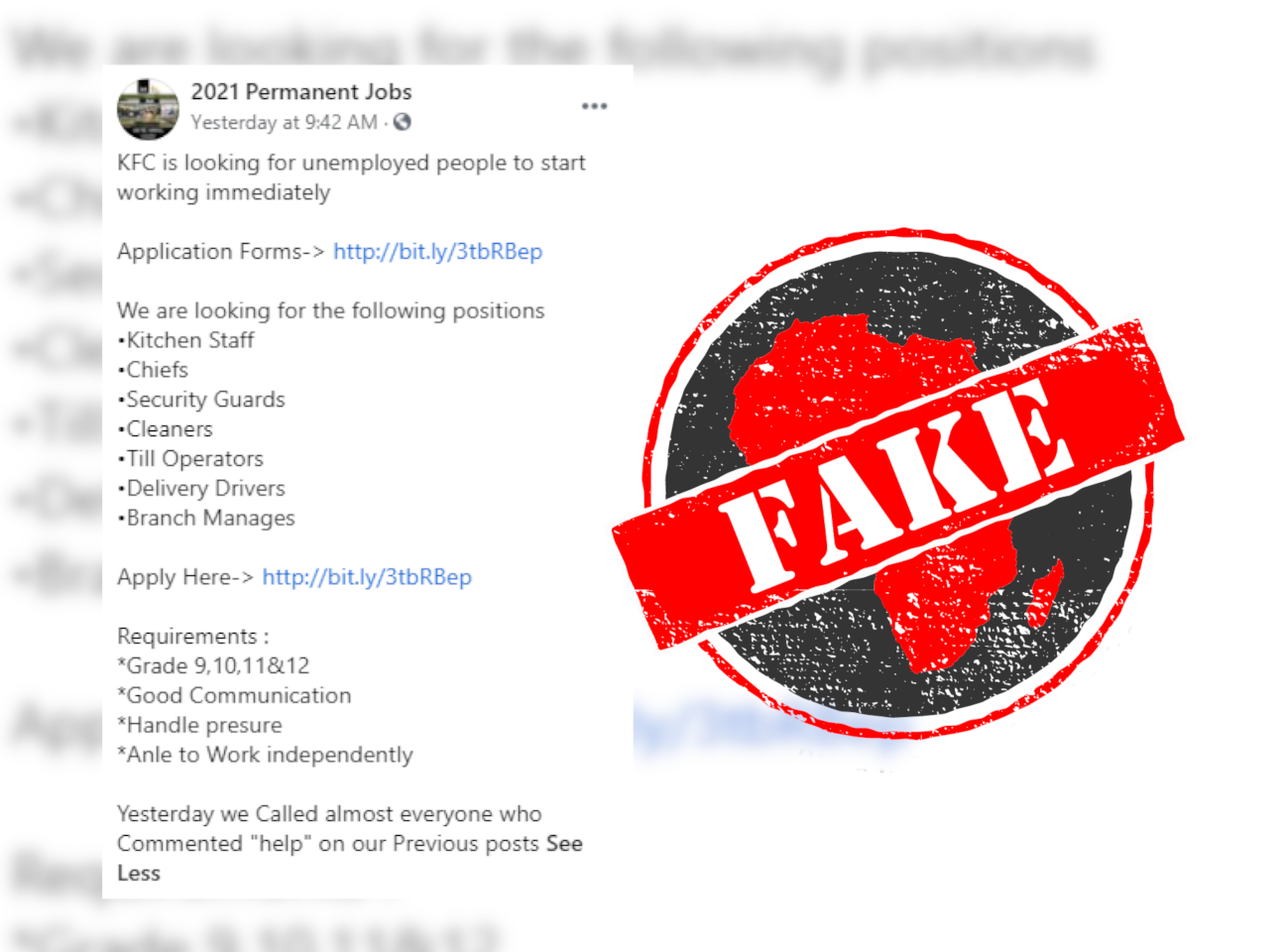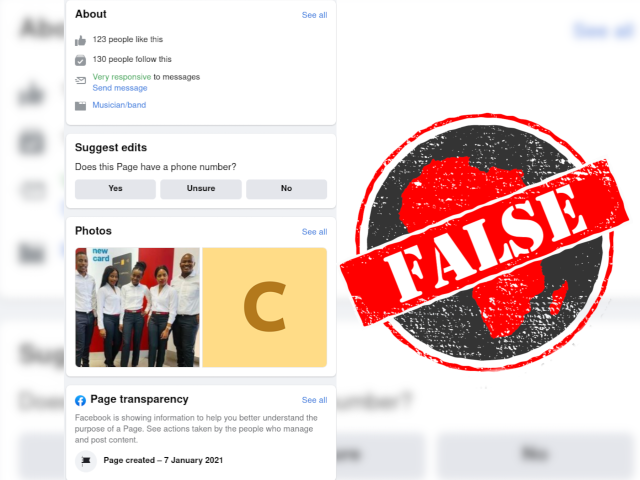Looking for a job on Facebook? It’s not a good idea – there are better options (see the end of this report for a few). And you certainly shouldn’t try any of the job offers advertised on the Facebook page “2021 Permanent Jobs”.
They’re all fake, and the page is a scam.
The scammers behind the page seem to make their money by directing hopeful job seekers to their website, which is full of adverts. This is a common tactic in Facebook-based job scams.
The page offers jobs at South African retail stores and fast food outlets – KFC, Jet, Woolworths, Shoprite, Boxer, Spar and more. It has also recently posted ads for jobs at the national health department.
It says these jobs are available “with or without matric” – South Africa’s school-leaving certificate – or with just a grade 9 qualification. Yet it offers salaries of up to R7,000 a month.
Minimum qualifications with a large salary is another common sign of a job scam. If a job offer seems too good to be true, it’s probably fake.
The “2021 Permanent Jobs” page also asks Facebook users to comment “help” on its posts. Many posts end with: “Yesterday we contacted almost everyone who Commented ‘Help’ on our Previous posts.”
This is engagement bait – posts that ask people to like, comment or share. The more people do this, the greater the Facebook page’s reach. Facebook is actively fighting engagement bait.

Fake department of labour website
Each post on “2021 Permanent Jobs” gives a link that redirects to a website where people can supposedly apply. At first the site looks legit. It’s titled “Department of Labour” and carries the coat of arms of the South African government.
But a closer look reveals that the page is, like everything else about “2021 Permanent Jobs”, fake. It’s a Google blog site, which can be set up for free. Its address is sites.google.com/view/labourdepartment, while the real South African department of labour website is at labour.gov.za.
The fake site has no content, except for two links. One reads: “Submit Application Letter Here” and the other “Without Grade 12: Apply Here”.
Both links redirect – again – to a dodgy-looking website simply titled “Jobs Portal”. The job offered on the home page has nothing to do with the job advertised on the Facebook post that led there. And an ad-blocking browser add-on reveals that the home page carries up to 12 adverts.
The site’s “about” section – which usually gives information on the people or organisations who publish a website – is empty, except for placeholder text. This reads: “You might be an artist who would like to introduce yourself and your work here or maybe you're a business with a mission to describe.”
The “Department of Labour” website is fake. The “Jobs Portal” website is fake. And the “2021 Permanent Jobs” Facebook page is a scam.
Where else can you look for a job?
Rather than searching for jobs on Facebook, try established and legitimate South African employment websites such as Pnet, Careers24 and Career Junction.
When you come across a website advertising jobs, always check the “about” section to make sure it’s legit. If there is no or very little information there, it’s probably a scam.
Large companies also advertise jobs on their websites, usually under the “careers” section. Most companies don’t advertise jobs on social media because of the danger of scams.
Find out more in Africa Check’s guide to Facebook scams and how to spot them, and our analysis of job scams on Facebook.
Republish our content for free
For publishers: what to do if your post is rated false
A fact-checker has rated your Facebook or Instagram post as “false”, “altered”, “partly false” or “missing context”. This could have serious consequences. What do you do?
Click on our guide for the steps you should follow.
Publishers guideAfrica Check teams up with Facebook
Africa Check is a partner in Meta's third-party fact-checking programme to help stop the spread of false information on social media.
The content we rate as “false” will be downgraded on Facebook and Instagram. This means fewer people will see it.
You can also help identify false information on Facebook. This guide explains how.



Add new comment